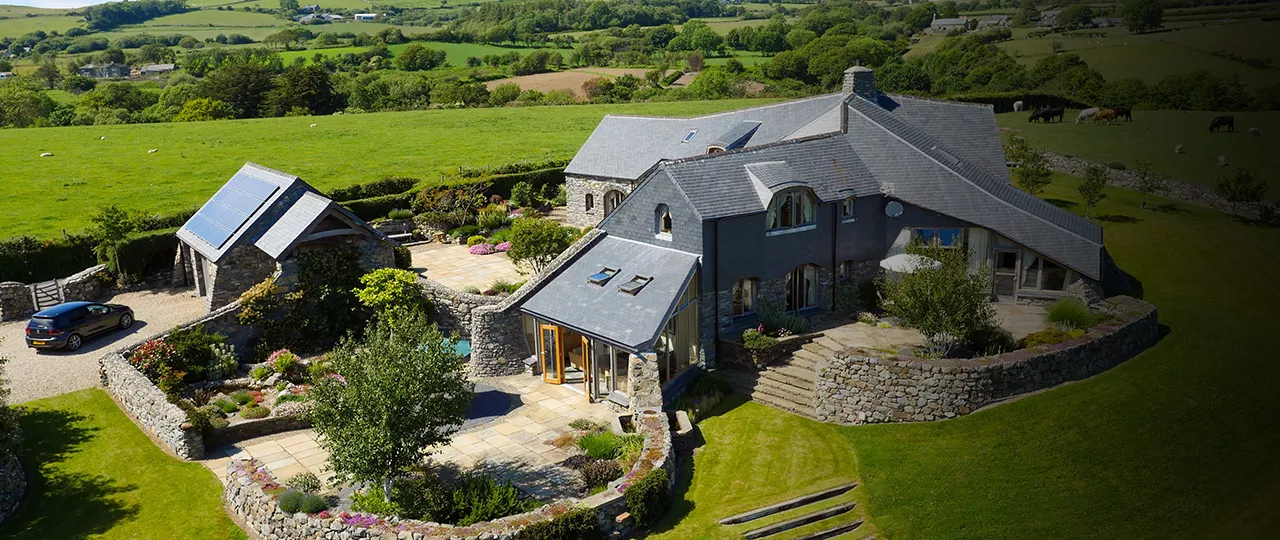
Period homes carry charm in abundance, but during the winter months they can get cold and put pressure on an aging heating system.
Draughty windows and poor insulation mean energy consumption can rocket when the temperature outside drops, but it doesn’t have to be this way. James Mackenzie, Head of Country House Department at Strutt & Parker, gives his tips for making your period home more energy efficient.
Don’t be downhearted when upgrading
‘The drive to make all homes more energy efficient has been embraced by a variety of sources from local government to charities and individuals. But there are a number of obstacles, especially when it comes to period properties. For example, owners of properties that are listed or are in Conservation Areas are restricted by what they can do structurally to the home. This means modern double-glazing and visible solar panels might not be allowed.
But there are moves to change this, with the Local Government Group publishing a paper on the benefits of energy-efficient homes for the country’s growing elderly population – many of whom live in period properties.’
What you can do…
Start with the basics
‘Before you go ripping down walls or pulling up plumbing, start with the basics. Take a walk around your house paying attention to windows, doors, loft hatches and where pipes or cables enter and identify the obvious draughts in your home. Once you know where the problems are, you can start to tackle them with simple fixes like using draught excluders, repairing broken windows, getting heavier curtains or filling in gaps in floor boards or around pipes or cables.
The next steps are a bit more technical, but can still be easily done. Firstly, look into getting a programmable smart thermostat. This can help you mimic the original heating system of warming one room at a time. Other fixes include unblocking radiators, insulating the loft access hatch and cat flaps, and changing all your lights to LED.’
See it as a system
‘Don’t look at the energy efficiency as a list of jobs to do – look at your home as a whole system. For example, if you simply start insulating outside walls this could stop moisture from escaping. The moisture then builds up on the inside walls and windows causing damp and mould. Likewise, if you insulate the inside walls, the outside of your home will get colder causing moisture to condense here.
If you’re losing a lot of heat from your home, look instead at insulating the loft and roof areas. Not only is this cheaper than doing the walls, but creates a more natural environment. And while not quite as energy efficient – 33% of heat is lost through walls compared to 25% through the roof – it can still help to make your house warmer and allows the walls to breathe.
Natural insulation can provide the answer to your insulation woes. Sheep wool and hemp are great products for insulating period properties as they have great thermal properties and allow the building to breathe. They’re also more sustainable in the long term as they come from natural sources.’
Maintain or replace the heating system
‘A dated central heating system can be one of the main causes of energy inefficiency. Getting a new one can be vital, even in period properties. A condensing boiler is the most efficient. The only issue is that many need external flues. Talk with your installer when getting it fitted as you don’t want it somewhere that will damage the properties external aesthetic.
Similarly, when you’re getting the new system installed consider hiring a professional joiner or carpenter, especially if you have original exposed floor boards. Gas engineers will need to get underneath these so a joiner can help them do so with the least among of damage.
For radiators, you can keep the original cast iron ones but make sure they’ve been cleaned and upgraded so they’re suitable for modern systems. You can move them if you’ve fixed your windows so they don’t let draughts in. Originally, radiators were placed under windows to help warm the air – if there’s no cold air coming in you can change their position.
Other energy efficient options are ground- or air-source heat pumps, which can be integrated sensitively into period properties with the right installer. These extract heat from the ground or air and use it to heat your property.’
Dealing with the window
‘Windows are an issue in period properties as they’re often single-glazed and have gaps allowing draughts in. If you’re not allowed to update these to standard double-glazing, there are other options.
Thin double-glazing provides the same effect but can often be installed into more traditional frames. Or you could look at insulating your shutters or period sashes. This can be done without the need to upgrade the windows and can outperform double glazing when closed.’
Work with nature, not against
‘Finally, there are a number of ways you can use nature to help make your home more energy efficient. One of the main ones is using a rainwater harvesting system. This can help you reduce the amount of water you use in your gardens and even for internal plumbing.
If you’re able, solar PV panels can be discreetly installed to help harness the power of the sun. Or you could build in a sunpipe to channel sun and warmth through the house to dark upstairs rooms and corridors.
